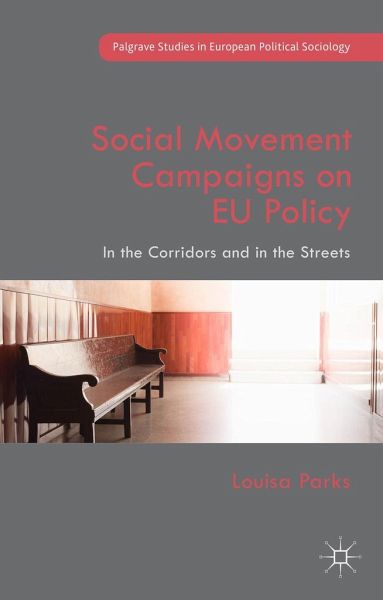
Social Movement Campaigns on EU Policy
In the Corridors and in the Streets

PAYBACK Punkte
19 °P sammeln!
This book assesses how much influence social movements have on EU policy and the means through which influence is secured. Using wide-ranging case studies of campaigns from GMOs to water rights and Internet freedom, it elucidates the important differences between technical and political campaigns.














